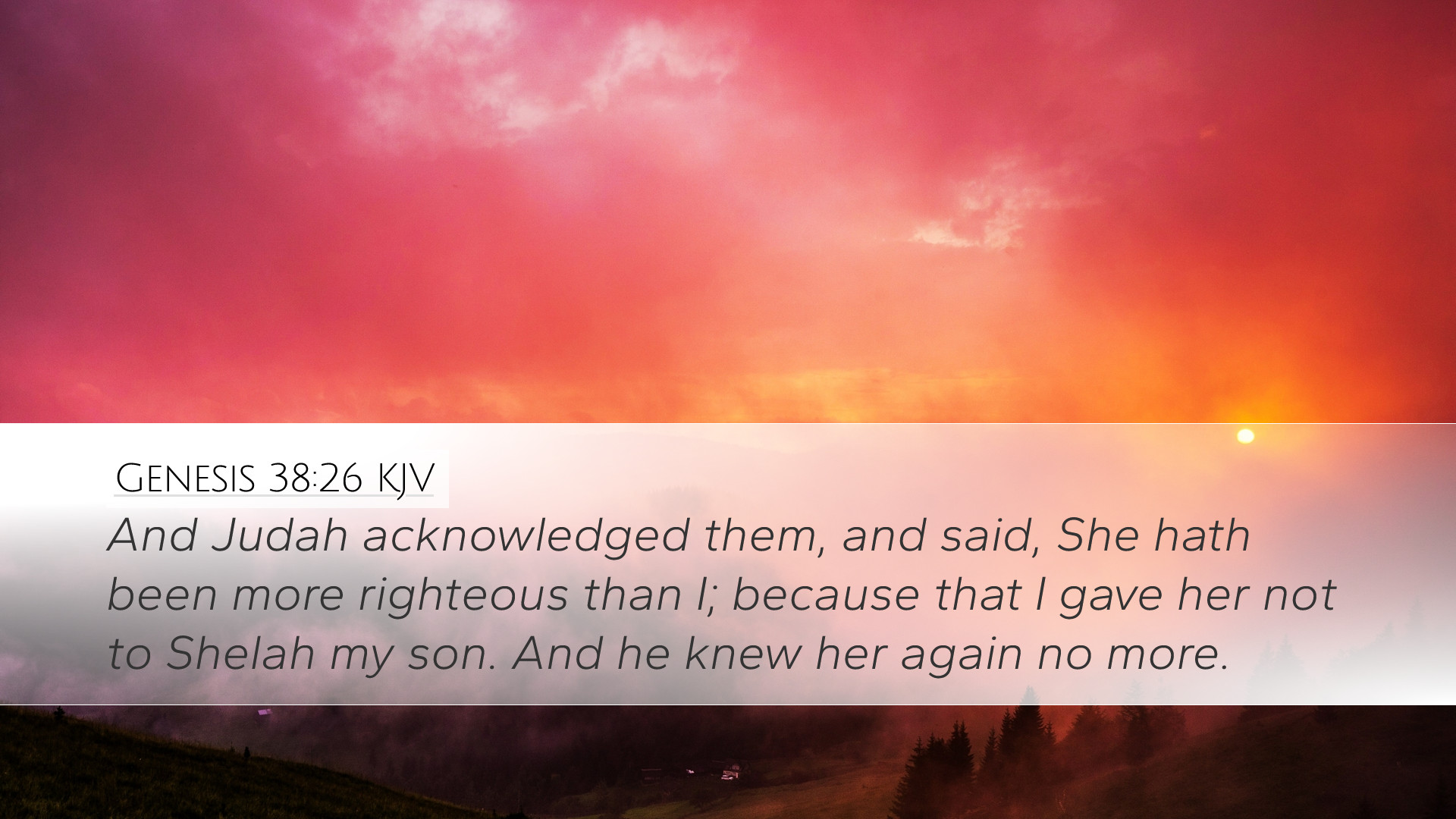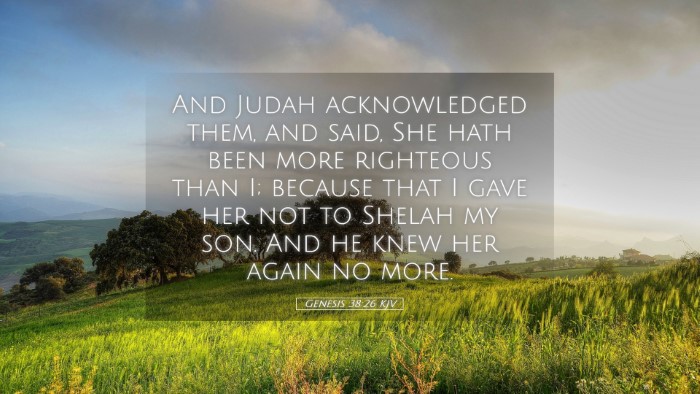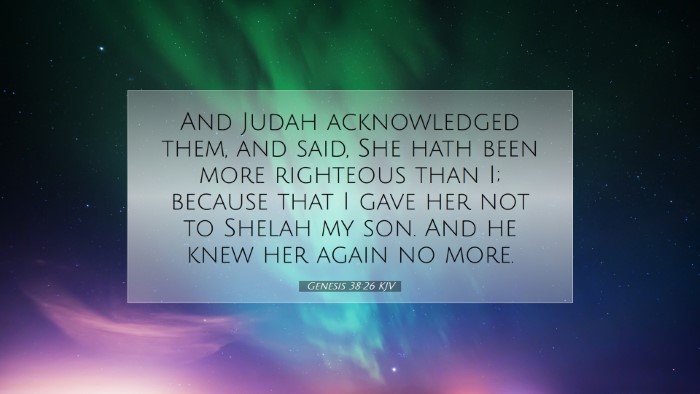Commentary on Genesis 38:26
Genesis 38:26 states:
“And Judah acknowledged them, and said, She hath been more righteous than I; because that I gave her not to Shelah my son. And he knew her again no more.”
Contextual Background
The chapter provides a poignant account of Judah's family dynamics, fate, and moral dilemmas. It highlights the struggle of Tamar, who, bereft of righteous provision from her father-in-law, seeks justice in a culture that often overlooks women.
Understanding the Characters
- Judah: A key figure whose actions drive the narrative. His recognition of Tamar's righteousness over his own symbolizes a significant moral awakening.
- Tamar: The widow of Judah's sons, who resorts to unorthodox means to secure her rights. Her actions challenge the customs of her time and ultimately reveal deeper themes of justice and righteousness.
Insights from Public Domain Commentaries
Matthew Henry's Commentary
Henry emphasizes the theme of judgment and repentance in this narrative. His commentary suggests that Judah’s statement, “She hath been more righteous than I,” serves as a critical acknowledgment of personal failure. Judah recognizes that he has failed to fulfill his duty to Tamar by providing for her through Shelah, which illustrates the importance of familial responsibilities.
Henry also points out that Tamar’s actions, understood within the cultural context, reflect her desperation and the severe implications of her situation. She is not merely acting out of lust but is driven by a desire for justice and restoration.
Albert Barnes' Notes on the Bible
Barnes elaborates on the moral implications of the verse. He draws attention to the idea of righteousness as discerned in the narrative. According to Barnes, Judah's admission of his wrongfulness illustrates a moment of clarity, where he sees the truth of his actions contrasted against Tamar's pursuit of justice.
Moreover, Barnes highlights the following implications of Judah’s acknowledgment: it serves as a lesson in self-awareness and accountability. Judah’s realization not only reflects his flawed judgment but also mirrors the human condition — the tendency to overlook our own faults while criticizing others.
Adam Clarke's Commentary
Clarke provides a detailed analysis of the social and legal conventions that underlie the actions of both Judah and Tamar. He discusses the significance of levirate marriage, which was a custom intended to provide security and continuation of family lineage for widows.
Clarke further argues that Tamar’s actions, although unconventional, were in line with the customs that afforded her rights in the absence of fulfillment from Judah. This cultural perspective adds a layer of complexity to the narrative, suggesting that righteousness can sometimes be found in unexpected places.
Thematic Contributions
Genesis 38:26 challenges readers to consider:
- The Nature of Righteousness: What does it mean to be righteous in complex moral situations?
- Accountability: Judah's confrontation with his own failures prompts discussions on personal accountability within leadership and familial structures.
- Social Justice: Tamar's actions raise questions about the rights of women and the social justice inherent in the Biblical text.
Conclusion
Genesis 38:26 serves as a profound reminder of the interplay between righteousness and human failure. It unfolds themes of justice, accountability, and the intricate moral choices individuals face. Through the lens of Judah and Tamar, the Scripture encourages believers to pursue righteousness, acknowledge personal shortcomings, and seek equitable treatment, especially for the marginalized.


